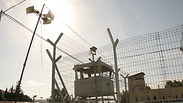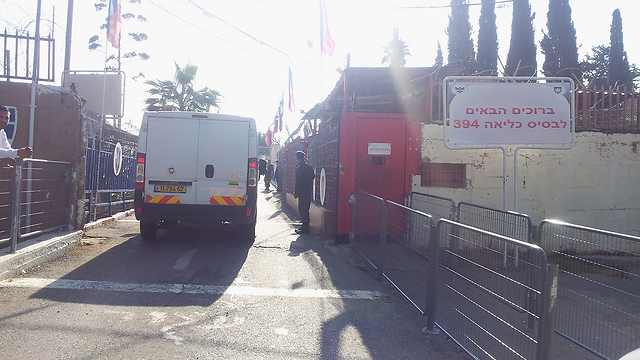
IDF warns deserters, initiates new sanctions
Around 3,000 IDF deserters receive text messages warning them of punishment, as army moves to legislate wide-ranging sanctions including refusal to issue driver's licenses, passports, and ID cards.
The IDF recently sent warning messages to thousands of cell phones belonging to deserters, while also receiving approval from the Justice Ministry to initiate an amendment that would allow for the imposition of severe government sanctions.
The proposed sanctions include a ban on Driver's license, ID card, and passport renewals; as well as a denial of housing benefits and scholarships; and a ban on obtaining a gun license. The implementation of these new sanctions depends on the legislative process.
The warning message sent by the IDF read: "Hello, according to army records, you are committing the offense of absence from service without approval, which will result in a criminal record. The duration of punishment you will receive will be determined, among other things, by the length of your absence. You must immediately settle your status using the following phone number or e-mail address."
A senior source in the IDF's Manpower Directorate told Ynet that from the moment the messages were sent, the army had been contacted by a large number of soldiers attempting to change their deserter status. The period of desertion begins on the soldier's 21st day of absence from his unit, until which he is considered AWOL.
According to IDF figures, there are currently around 3,000 deserters, a relatively stable number as soldiers who enter a desertion period are often offset by those who return to the army.
According to the Manpower Directorate officer, however, there has been a decrease of around 20 percent in the number of deserters compared to 2013, and most of the deserters (75 percent) are soldiers in their first year of compulsory service. The rest are reserves soldiers, and only a few dozen have been deserters for eight to nine years or more.
The Manpower Directorate plans to go beyond sending of text messages. The IDF was encouraged by the success of legislation by MK Yoni Chetboun (Bayit Yehudi), which established that deserters cannot receive state scholarships, and hopes to expand on the law.
The officer told Ynet that the directorate is seeking to pass legislation resulting in government ministries not issuing ID cards or passports to deserts, rejecting requests for tax dedications or housing benefits, and even refusing to renew driver's licenses.
In addition, the legislation would block deserters from public offices and ban them from renewing or receiving a weapons license. However, the officer said that there is no intention to enact harsher punishments for deserters, which currently max out at two years imprisonment – but judges in military courts tend to be lenient towards deserters, sending them to military prison for a few weeks or months at most.
Deserters occasionally go unpunished, if they arrive at trial with an experienced attorney who is an expert in the field.
"65 percent of deserters settle their status with the army, and we are left with the stubborn core that is completely unmotivated to complete their military service," said the officer. "It's impossible to have a conversation with them and it's likely that they will keep being deserters. We pay attention to special life circumstances like raising a family, but still fully utilize the law with the absentees, and they bear the consequences. "
"Law enforcement also differentiates between deserters and draft dodgers," said the officer. "A draft dodger doesn't even try to go into the army and will therefore be punished even more. Furthermore, it's more difficult to locate a draft dodger because we sometimes don't have any of thier details."











